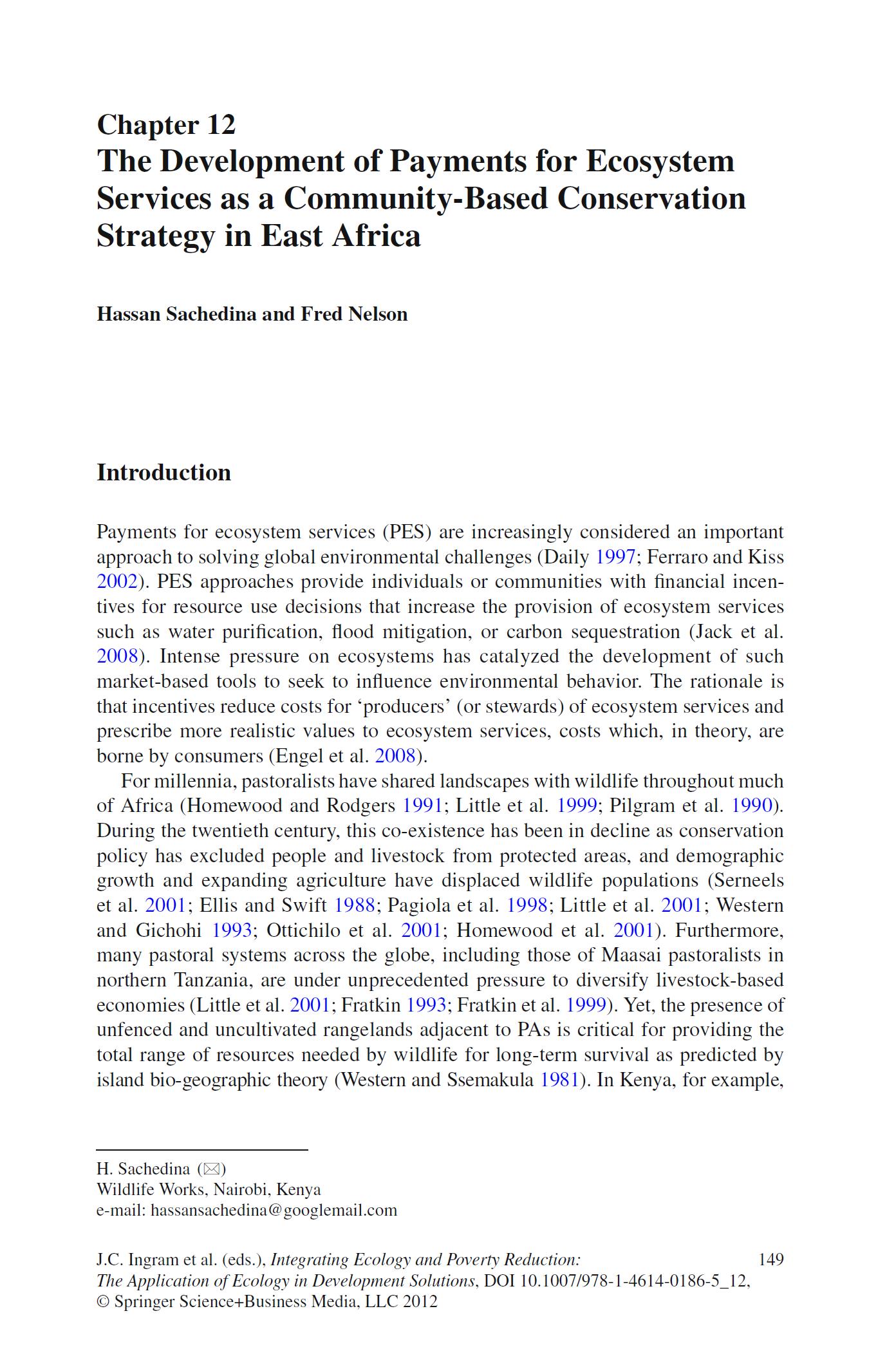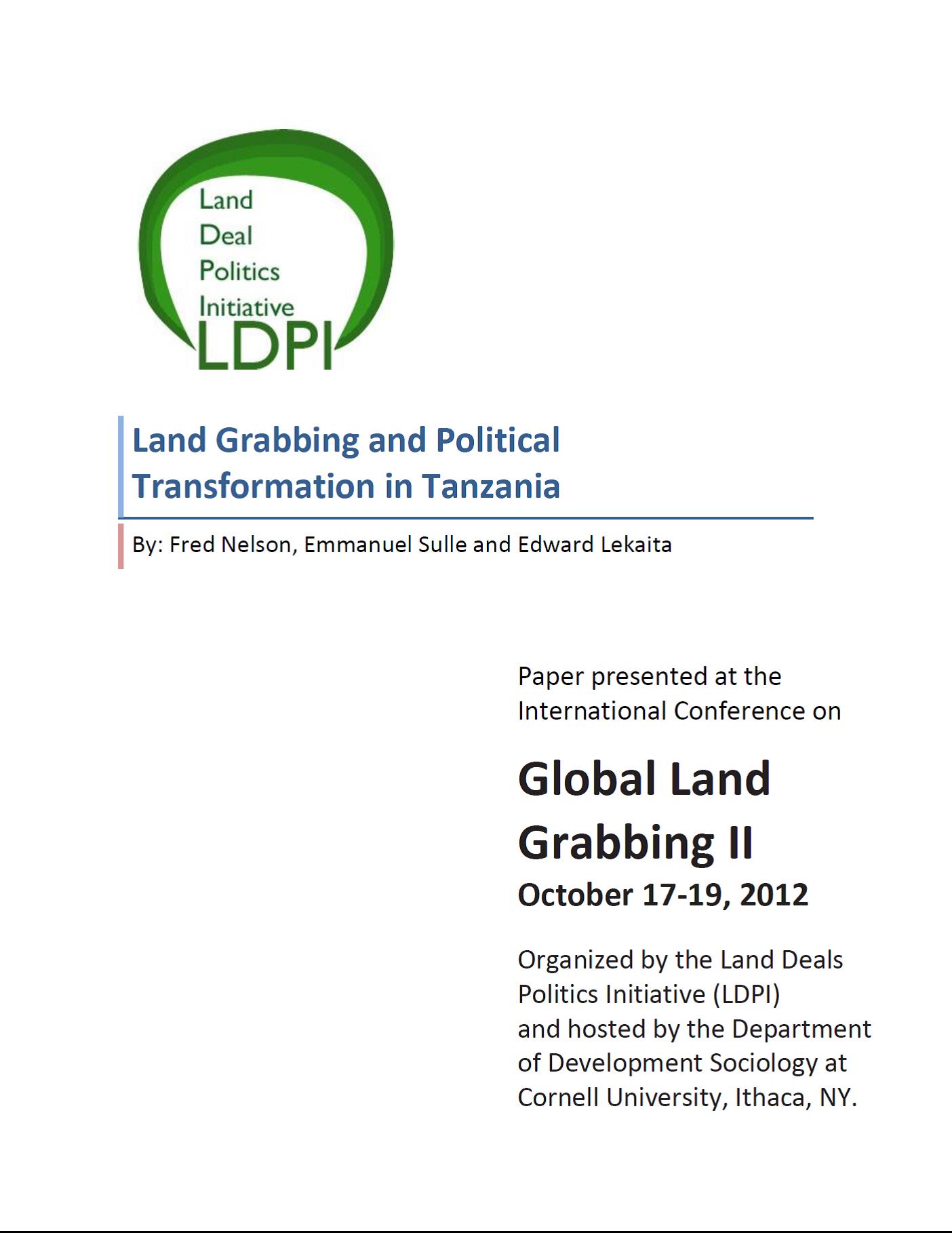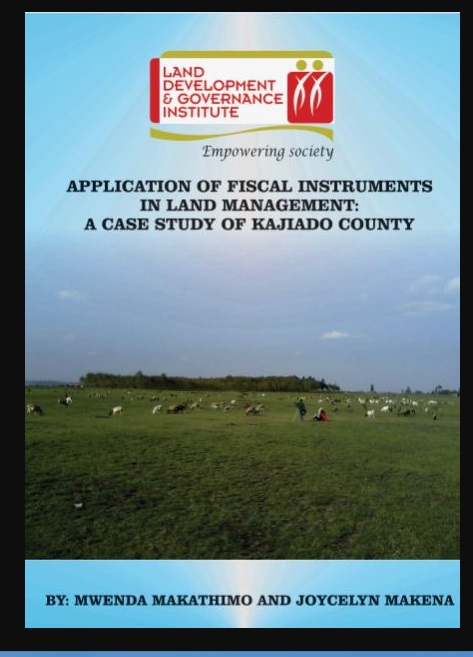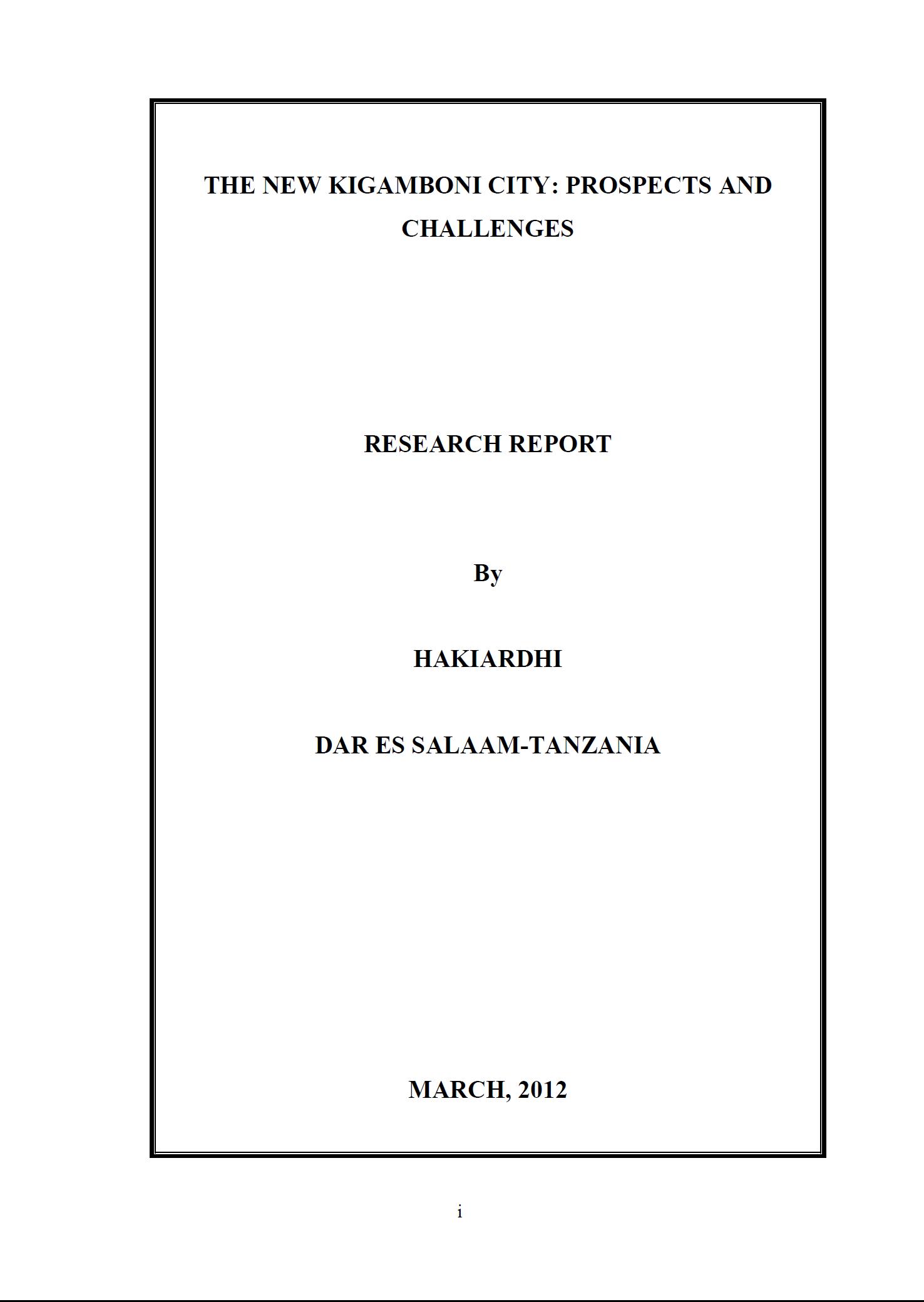Towards more equitable terms of cooperation: local people's contribution to commercial timber concessions
The Development of Payments for Ecosystem Services as a Community-Based Conservation Strategy in East Africa
This paper explores the development of a pilot PES scheme in the Tarangire ecosystem of Tanzania in response to specifi c wildlife declines and policy constraints. It charts the development of this initiative from its genesis based on PES experiences in Kenya.
Land Grabbing and Political Transformation in Tanzania
Like many of its neighbors, Tanzania is experiencing a well-documented surge of land grabbing related to investments in industries such as agriculture, biofuels, tourism, hunting, and forestry. Land grabbing in Tanzania is best understood and analyzed as both a symptom of and contributor towards wider political economic processes of change occurring in Tanzania.
Loi n° 1/2012 du 13 août 2012 instituant la concession d’aménagement foncier en République gabonaise.
La présente loi, prise en application des dispositions de l'article 47 de la Constitution, fixe les modalités de concession par l'État ou les collectivités locales de certaines opérations d'aménagement foncier à une personne morale, publique ou privée de droit gabonais, dénommée l'aménageur.
Sub-decree No.102 on the privatization of 18,838 hectares of state land located in Kampong Domrie commune, Chlong district, Kratie province, for social land concessions and other developments
The aim of this sub-decree is to privatize a land of which size is 18,838 hectares from the Forest Cover 2002 in Kampong Domrie commune, Chlong District, Kratie province, for social land concessions and other developments.
Sub-decree No.95 on the privatization of state public land in Boeung Lvea commune, Santuk district, Kampong Thom province, for social land concessions to 253 affected families of a riverbank collapse in Peam village and Peam Krao village, Peam Koh Sla ...
The purpose of this sub-decree is to privatize state public land of which size is 3469 hectares, in Boeung Lvea Commune, Santuk District, Kampong Thom Province, in order to grant social land concessions to 253 families who were affected by a riverbank collapse in Peam Village and Peam Krao Village, Peam Koh Sla Commune, Strung Trang District, Kampong Cham Province.
Application of Fiscal Instruments in Land Management
Fiscal instruments are tools that governments use to manage revenue and expenditure and therefore influence the growth (or stability) of the various sectors of the economy. Government revenue is derived primarily through taxation. In Kenya, land taxation has contributed less than 1% of government revenue for the past three years. The Sessional Paper No.
The New Kigamboni City: Prospects and Challenges
In early 2008 the government of Tanzania through the Ministry of Lands, Housing and Human Settlements Development –MLHHSD, initiated a project to develop a new city at Kigamboni area in Temeke district of Dar es Salaam region.
Turning Land into Capital, Turning People into Labour: Primitive Accumulation and the Arrival of Large-Scale Economic Land Concessions in the Lao People's Democratic Republic.
In recent years the government of Laos has provided many foreign investors with large-scale economic land concessions to develop plantations.
Economic land concessions profile: Land and Developing (Cambodia)
A webpage list showing company name, address, director name and nationality, status of company registration with the Ministry of Commerce, legal papers and investment rights, ELC size and location with coordinates, purpose of investment, contract duration, land utilization plan, profess of implementation after contract signing, and any measures taken by the Ministry of Agriculture (MAFF).
Stolen land and stolen future : a report of land grabbing in Cambodia
The focus of this report is land grabbing in Cambodia.
it is based on APRODEV Agencies experience from
many years of development work. The report documents how affected communities have lost their livelihoods because of land grabbing by national and
international business corporations. Local communities have lost their livelihoods.







